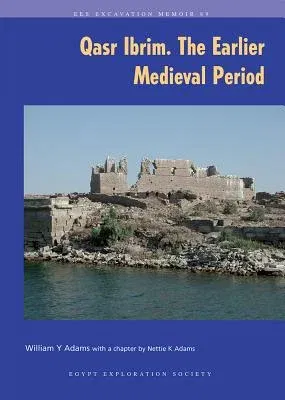William Y Adams
(Author)Qasr Ibrim: The Earlier Medieval PeriodPaperback, 31 December 2010

Qty
1
Turbo
Ships in 2 - 3 days
In Stock
Free Delivery
Cash on Delivery
15 Days
Free Returns
Secure Checkout

Part of Series
Excavation Memoir
Part of Series
Excavation Memoirs
Print Length
319 pages
Language
English
Publisher
Egypt Exploration Society
Date Published
31 Dec 2010
ISBN-10
0856981915
ISBN-13
9780856981913
Description
Product Details
Author:
Book Format:
Paperback
Country of Origin:
US
Date Published:
31 December 2010
ISBN-10:
0856981915
ISBN-13:
9780856981913
Language:
English
Location:
London
Pages:
319
Publisher: